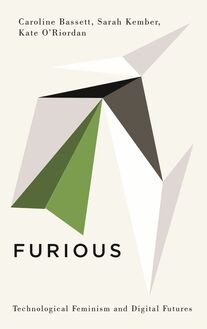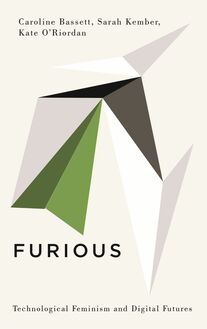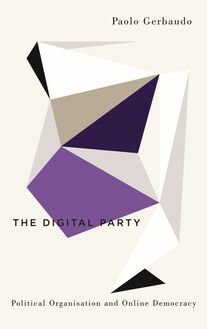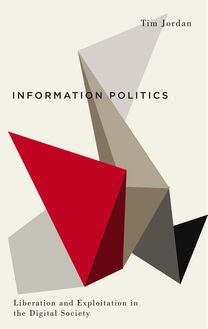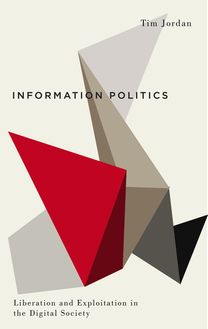-
 Univers
Univers
-
 Ebooks
Ebooks
-
 Livres audio
Livres audio
-
 Presse
Presse
-
 Podcasts
Podcasts
-
 BD
BD
-
 Documents
Documents
-
- Cours
- Révisions
- Ressources pédagogiques
- Sciences de l’éducation
- Manuels scolaires
- Langues
- Travaux de classe
- Annales de BEP
- Etudes supérieures
- Maternelle et primaire
- Fiches de lecture
- Orientation scolaire
- Méthodologie
- Corrigés de devoir
- Annales d’examens et concours
- Annales du bac
- Annales du brevet
- Rapports de stage
La lecture à portée de main
Vous pourrez modifier la taille du texte de cet ouvrage
Découvre YouScribe en t'inscrivant gratuitement
Je m'inscrisDécouvre YouScribe en t'inscrivant gratuitement
Je m'inscrisEn savoir plus
Vous pourrez modifier la taille du texte de cet ouvrage
En savoir plus

Description
In Information Politics, Tim Jordan identifies all these issues in relation to a general understanding of the nature of an information politics that emerged with the rise of mass digital cultures and the internet. He locates it within a field of power and rebellion that is populated by many interwoven social and political conflicts including gender, class and ecology.
The exploitations both facilitated by, and contested through increases in information flows; the embedding of information technologies in daily life, and the intersection of network and control protocols are all examined. Anyone hoping to get to grips with the rapidly changing terrain of digital culture and conflict should start here.
Series Preface
Acknowledgements
Introduction: Information as a Politics
Part I: Theory of Information Power
1. Recursion
2. Technologies' Embrace
3. Network and Protocol Theory: Dis/Organising Information Power
Part II: Platforms
4. Clouds
5. Securitisation of the Internet
6. Social Media Networks
Part III: Battlegrounds
7. Battlegrounds and the iPad
8. Death and Gaming
9. Hacktivism: Operation Tunisia, Modular Tactics and Information Activism
Conclusion: Information Exploitation and Information Liberation
Bibliography
Index
Sujets
Informations
| Publié par | Pluto Press |
| Date de parution | 20 février 2015 |
| Nombre de lectures | 0 |
| EAN13 | 9781783712977 |
| Langue | English |
Informations légales : prix de location à la page 0,0005€. Cette information est donnée uniquement à titre indicatif conformément à la législation en vigueur.
Extrait
Information Politics
Digital Barricades: Interventions in Digital Culture and Politics
Series editors: Professor Jodi Dean, Hobart and William Smith Colleges Dr Joss Hands, Anglia Ruskin University Professor Tim Jordan, University of Sussex
Also available
Cyber-Proletariat: Global Labour in the Digital Vortex Nick Dyer-Witheford
Information Politics
Liberation and Exploitation in the Digital Society
Tim Jordan
First published 2015 by Pluto Press
345 Archway Road, London N6 5AA
www.plutobooks.com
Copyright © Tim Jordan 2015
The right of Tim Jordan to be identified as the author of this work has been asserted by him in accordance with the Copyright, Designs and Patents Act 1988.
British Library Cataloguing in Publication Data
A catalogue record for this book is available from the British Library
ISBN 978 0 7453 3367 0 Hardback
ISBN 978 0 7453 3366 3 Paperback
ISBN 978 1 7837 1296 0 PDF eBook
ISBN 978 1 7837 1298 4 Kindle eBook
ISBN 978 1 7837 1297 7 EPUB eBook
This book is printed on paper suitable for recycling and made from fully managed and sustained forest sources. Logging, pulping and manufacturing processes are expected to conform to the environmental standards of the country of origin.
10 9 8 7 6 5 4 3 2 1
Typeset by Stanford DTP Services, Northampton, England
Text design by Melanie Patrick
Simultaneously printed by CPI Antony Rowe, Chippenham, UK
and Edwards Bros in the United States of America
Contents
Series Preface
Acknowledgements
Introduction: Information as a Politics
Part 1
Theory of Information Power
1
Recursion
2
Technologies’ Embrace
3
Network and Protocol Theory: Dis/Organising Information Power
Part 2
Platforms
4
Clouds
5
Securitisation of the Internet
6
Social Media Networks
Part 3
Battlegrounds
7
Battlegrounds and the iPad
8
Death and Gaming
9
Hacktivism: Operation Tunisia, Modular Tactics and Information Activism
Conclusion: Information Exploitation and Information Liberation
Bibliography
Index
Series Preface
Crisis and conflict open up opportunities for liberation. In the early twenty-first century, these moments are marked by struggles enacted over and across the boundaries of the virtual, the digital, the actual and the real. Digital cultures and politics connect people even as they simultaneously place them under surveillance and allow their lives to be mined for advertising. This series aims to intervene in such cultural and political conjunctures. It will feature critical explorations of the new terrains and practices of resistance, producing critical and informed explorations of the possibilities for revolt and liberation.
Emerging research on digital cultures and politics investigates the effects of the widespread digitisation of increasing numbers of cultural objects, the new channels of communication swirling around us and the changing means of producing, remixing and distributing digital objects. This research tends to oscillate between agendas of hope, that make remarkable claims for increased participation, and agendas of fear, that assume expanded repression and commodification. To avoid the opposites of hope and fear, the books in this series aggregate around the idea of the barricade. As sources of enclosure as well as defences for liberated space, barricades are erected where struggles are fierce and the stakes are high. They are necessarily partisan divides, different politicisations and deployments of a common surface. In this sense, new media objects, their networked circuits and settings, as well as their material, informational, and biological carriers all act as digital barricades.
Jodi Dean, Joss Hands and Tim Jordan
Acknowledgements
If this book has a beginning point then for me it was in the mid 1990s when I was fortunate enough to be interviewing John Gilmore, co-founder of the Electronic Frontier Foundation, key cypherpunk, early employee of Sun Microsystems, early Free Software advocate and coder, passionate civil libertarian, multi-millionaire, and who will be remembered for many many years as the coiner of the slogan ‘the internet treats censorship as damage and routes around it’. During that interview I came to two conclusions. First, that John Gilmore knew far, far more, ridiculously more, about the nature, consequences and meaning of the digital and the internet than I did. Second, that I disagreed with his views.
From that beginning I feel looking back that I have for years now had as one part of my intellectual life the long effort to articulate the meaning of a politics native to the internet and the digital. And to do this in a way that is well based enough to argue with the views of those like Gilmore, while recognising that their views, particularly their libertarian views, are not simple ideologism but are based on a close understanding of changes in information in our societies. So if this book is any one person’s fault it is Gilmore’s!
Since then I have been privileged to work with a whole range of other academics and activists in trying to understand what this book argues is the rise of a new politics of information. I cannot name them all here and would unquestionably forget some if I tried, so I simply offer a general and heartfelt thanks to all those I’ve agreed/disagreed/argued with in person, in print or in the virtual during 20 years of research on the internet and on the politics of liberation.
Quite a few people were more directly inspirational for this book rather than just in the intellectual career behind it. Here I want to thank: all those in the culture digitally network ( www.culturedigitally.org ), especially the organisers Tarleton Gillespie and Hector Postigo; my recent colleagues at King’s College London especially Paolo Gerbaudo, Btihaj Ajana, Mark Coté, Tobias Blanke, Christina Scharff, Bridget Conor, Melissa Nisbett, Paul Sweetman, Andrew Prescott; my recent PhD students who have been invaluable in keeping me on my toes, Paula Serafini, Photini Vrikki, Xiaojin Chen and Jeremy Matthews; MA students on the MA Digital Culture and Society at King’s College London, especially Daniel Holland, Tyler Handley, Bentley Yaffe and Nikki Cheong; my colleagues in the Being in the Zone network that offered a brilliant counterpoint to the obsessions with information in this book, and particularly Kath Woodward and Mark Banks; several colleagues and some friends I’ve been fortunate to discuss some of these ideas with: Richard Collins, Dave Hesmondhalgh, Ros Gill, Melissa Gregg, Ron Deibert, Gabriella Coleman and Stefania Milan; my friends in the guild AS provide great friendship as well as living the virtual life, particularly Nico, Rahman, Liam, Rodolphe and Anders.
Finally there are three more particular debts I want to acknowledge. The editors of the Digital Barricades books series, Joss Hands, Jodi Dean and David Castle, have been brilliant at supporting this project and saving the world from the ‘networtocol’. My long-time friend and fellow academic Kim Humphery remains the best possible person anyone could meet in their first university philosophy tutorial. Third, the participants in the Platform Politics Conference in Cambridge in 2011 heard the first, not terribly coherent, attempt to articulate these ideas of an information politics; thanks very much to Joss Hands and Jussi Parikka for inviting me to it and to all the participants for the excellent discussions.
Finally, I owe a debt beyond words to my family, with all the Cornwall-Joneses in the UK and all the Jordans (and Cornwall-Joneses) in Australia, but most of all to my wonderful daughters Matilda and Joanna.
Introduction: Information as a Politics
Information as a politics of exploitation and liberation is now central to the twenty-first century. The signs of this are around us: the privacy implications of Google and Facebook; the endless ‘terms of service’ that we do not read but which all too often claim rights over our information; the clouds that never rain; automated blocking of websites put in place by ISPs; the centrifuges in Iran spinning out of control to explode because of the Stuxnet worm; Green Dam and the great firewall in China; the NSA spying on everyone. All these, and more, are signs of an information politics at the core of living in the twenty-first century.
Sometimes examples and events link together, such as when some proclaimed an ‘information war’ in 2010–11. At that time, there was the controversy of US State Department cables leaked by WikiLeaks and then US government retaliation by proxy when companies such as MasterCard withdrew their services to WikiLeaks. Online retaliation against these attacks soon followed, with attempts to close down MasterCard’s and other companies’ websites. A second front was opened when, a little later, web-pages were blacked out around the world in protest against legislation, going under various names such as SOPA/PIPA/ACTA, that was held to be creating greater censorship of the internet. Around the same time, hackers within the movement Anonymous created ‘digital care packages’ that offered the promise of secure communication to Tunisian protesters as the Arab Spring switched into high gear. In 2010 and 2011, the drumbeats could be heard behind these events, calling up the spectre of war in the information sphere. From John Perry Barlow’s tweet, ‘The first serious infowar is now engaged. The field of battle is WikiLeaks. You are the troops. #WikiLeaks’ (Barlow 2010), to the pronouncements of Anonymous, the idea took hold that conflict in the infosphere had been let loose. Soon battles were joined, offensives launched – such as LulzSec’s ‘50 days of lulz’ campaign – defeats inflicted and victories claimed.
A proclaimed ‘information war’ is one symbol of the rise in importance of a politics of information, but even without the martial them
-
 Univers
Univers
-
 Ebooks
Ebooks
-
 Livres audio
Livres audio
-
 Presse
Presse
-
 Podcasts
Podcasts
-
 BD
BD
-
 Documents
Documents
-
Jeunesse
-
Littérature
-
Ressources professionnelles
-
Santé et bien-être
-
Savoirs
-
Education
-
Loisirs et hobbies
-
Art, musique et cinéma
-
Actualité et débat de société
-
Jeunesse
-
Littérature
-
Ressources professionnelles
-
Santé et bien-être
-
Savoirs
-
Education
-
Loisirs et hobbies
-
Art, musique et cinéma
-
Actualité et débat de société
-
Actualités
-
Lifestyle
-
Presse jeunesse
-
Presse professionnelle
-
Pratique
-
Presse sportive
-
Presse internationale
-
Culture & Médias
-
Action et Aventures
-
Science-fiction et Fantasy
-
Société
-
Jeunesse
-
Littérature
-
Ressources professionnelles
-
Santé et bien-être
-
Savoirs
-
Education
-
Loisirs et hobbies
-
Art, musique et cinéma
-
Actualité et débat de société
- Cours
- Révisions
- Ressources pédagogiques
- Sciences de l’éducation
- Manuels scolaires
- Langues
- Travaux de classe
- Annales de BEP
- Etudes supérieures
- Maternelle et primaire
- Fiches de lecture
- Orientation scolaire
- Méthodologie
- Corrigés de devoir
- Annales d’examens et concours
- Annales du bac
- Annales du brevet
- Rapports de stage
